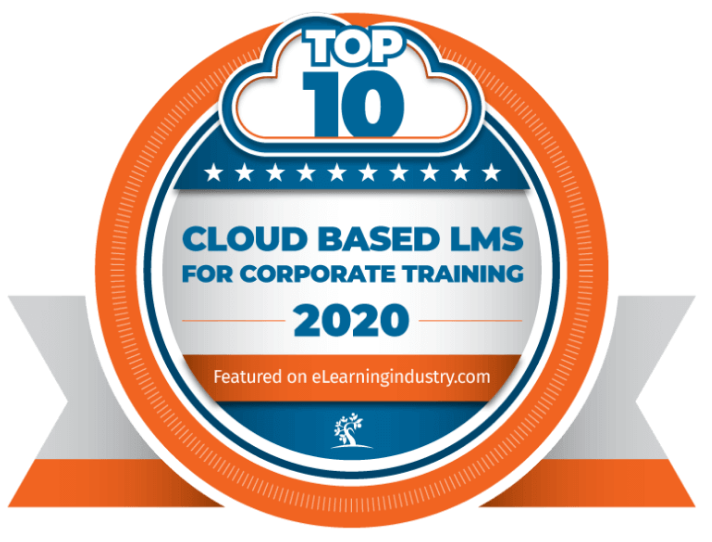February 5, 2025
The Future of Training: AI Integration in Corporate Learning Management Systems

With the business landscape rapidly evolving, it is vital to upskill yourself with the latest knowledge. This means corporate training must change as well. Old-school lectures and cookie-cutter training programs aren’t doing it for most anymore. The best way for an employee to learn can differ from individual to individual. To keep up, organizations are increasingly utilizing modern corporate learning management systems (LMS) to manage and deliver training.
A learning management system is software that streamlines delivering, managing and tracking your organization’s online training. When combined with AI’s incredible potential, an LMS achieves a great learning experience that connects users with the training they seek. It can process data, automate tasks, and provide super-smart analytics. It is the perfect solution to training managers’ issues and can take those LMS systems to a new level.
Standard Corporate LMS Vs. AI-Powered Corporate LMS
The key difference between a traditional corporate LMS and an AI-enabled one is the level of automation and personalization that the learning process offers.
Traditional corporate learning management systems typically follow a relatively static content delivery model and cannot cater to the needs of individual learners. Such systems require—and sometimes far more than—loud human interference for any number of processes, from content writing and assessment scoring to administration.
On the other hand, AI-powered corporate learning management systems use machine learning algorithms to adapt content capable of automated learning to each learner’s requirements. These modern systems also help automate administrative tasks and provide deep analytics and insights. Thus, AI enables the establishment of a responsive, effective, and more sustainable learning atmosphere through an AI-based corporate LMS.
Key Features of an AI-powered Corporate Learning Management System
Hundreds of AI-orientated platforms exist, from learning experience platforms to authoring tools to analogs that make organizing, deploying and analyzing your learning easier. Instead, tech has led to AI-powered solutions, which automate processes, customize the learning experience and even offer insights into how learners work and perform.
Adaptive Learning: AI-powered corporate learning management systems can personalize the learning material and adjust the pace according to each learner, so the learners are challenged enough but not so much that they are overwhelmed with the new material.
Customization and Personalization: Artificial intelligence-based learning platforms highlight relevant content and learning resource recommendations based on the learner’s needs, skill set, preferences, and goals.
Automated Assessments: AI can automate the development and grading of assessments, so trainers can spend less time preparing tests and offer students immediate feedback.
Analytics and Reporting: AI-powered learning platforms can offer comprehensive analytics and reports regarding learner performance, engagement, and progress at all levels. This supports training managers in gauging the effectiveness of their programs and using data-informed decision-making.
Emerging Trends in AI-Driven Corporate Learning Management Systems
Let’s explore how gamification and other advancements transform corporate learning management systems:
Gamification and AI in LMS: Gamification is a popular and effective tool in modern LMSs, and AI is further advancing it. This blend leads to more engaging and accessible learning. Its use in corporate training and team-building convinces L&D and HR professionals of its worth.
Virtual Tutoring: AI-enabled corporate LMS can create tailored virtual tutoring systems. These systems look at how users interact and provide a feedback system using virtual mentors, being able to speak and provide text or even gestures to promote communication positively.
Highly Intuitive Content: AI can adjust the content to individual needs within an LMS. By predicting how users will behave and adjusting based on their linguistic style, AI ensures that the material is relevant and resonates with every individual’s learning. These systems allow for the creation of highly tailored, user-friendly features that meet learners’ needs in terms of knowledge and preference, resulting in increased engagement.
Talent Management: HR and educational counselors have traditionally utilized talent management systems to identify skills gaps. However, modern corporate learning management systems are taking this a step further. They integrate talent management features to deliver course materials and tailor learning paths to help learners access and develop the most relevant content.
Mobile Learning: Mobile technology has transformed LMS. Learning content must be accessible anywhere, anytime, on any device. LMS offerings now include mobile apps, HTML5 sites and other mobile functions.
AI-Enhanced Content in LMS: AI significantly improves the content within the corporate learning management system. It analyzes existing materials and flags areas for improvement. By monitoring learner progress and understanding, AI allows content creators to improve their lessons for optimal results.
Interactive Video-Based Learning: The power of video is well-known, and its place in the eLearning field is growing. Video is being seamlessly integrated into LMS on more and more platforms. Cloud-based SaaS LMS solutions help educators add training videos to create more engaging and accessible learning experiences.
Use Cases
AI-based corporate learning management systems have diverse applicability across industries and use cases. Key examples include:
Healthcare: Hospitals and medical facilities use AI-powered LMS to train medical practitioners on new practices and physical, environmental, and other guidance to meet the customs they must maintain.
Manufacturing: AI-powered learning management system platforms aid in training employees in the manufacturing sector on intricate machinery, safety measures, and quality assurance processes, resulting in higher efficiency and fewer workplace accidents.
Financial Services: An AI-driven LMS for banks and financial institutions trains employees on financial regulations, compliance requirements, and new products, facilitating adherence to industry standards and best practices.
Government and Public Sector: government agencies utilize AI-powered LMS platforms to train their employees on new policies, administrative procedures, and best practices to streamline governance and improve public service delivery.
Conclusion
AI will transform corporate learning through its integration with LMS platforms. AI-powered LMS encompasses a range of advanced features, including personalized learning, automated assessments, insightful analytics, and enhanced content. This change enables organizations to break free from conventional training paradigms, fostering more responsive and impactful skill development opportunities.
By adopting these smart systems, organizations are empowering their staff, propelling the firm, and gaining an edge in the future of corporate training. Connect with us today to explore how an AI-driven corporate learning management system can elevate your training programs!







